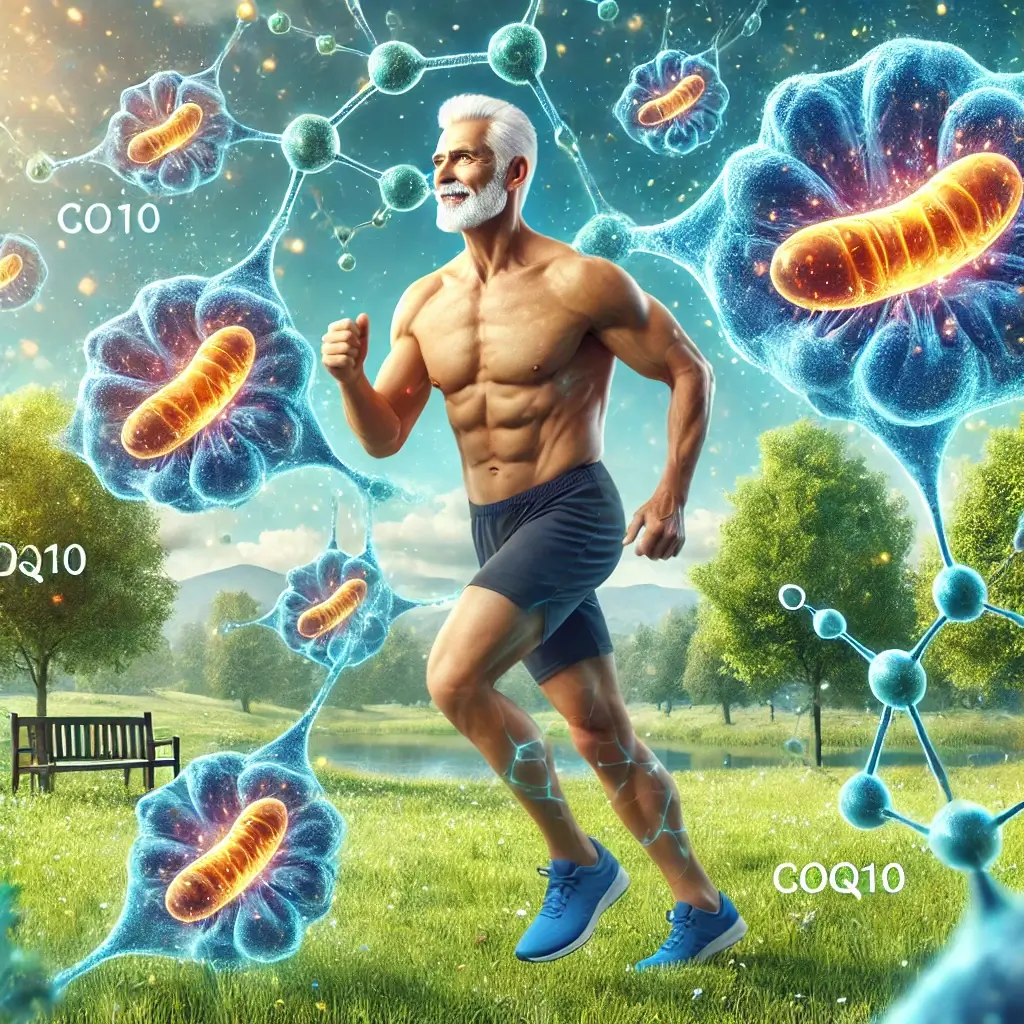Male Sexual Peak: Optimization Strategies for Lifelong Vitality
Introduction
Sexual health is a crucial aspect of overall well-being, influencing confidence, relationships, and even longevity. However, male sexual performance and libido are not static—they fluctuate due to age, hormonal changes, mental health, and lifestyle choices. Understanding the concept of the “male sexual peak” is essential for men of all ages, from teens to their 90s, to optimize their sexual health and maintain peak performance.
The concept of a male sexual peak is often misunderstood. Common myths suggest that men hit their peak in their late teens or early twenties, while women peak later in life. However, sexual health is about more than hormone spikes in adolescence. Scientific research shows that testosterone levels—the hormone largely responsible for male libido and performance—typically peak in the late teen years but do not immediately decline afterward. Instead, factors such as diet, exercise, mental health, stress levels, and medical conditions determine ongoing sexual performance and satisfaction.
While men in their 20s may experience high-frequency sexual activity, it doesn’t mean that older men can’t optimize and enjoy a fulfilling sex life well into their 70s and beyond. In fact, many men report higher satisfaction as they age due to increased emotional maturity, better communication skills, and experience. Understanding the physiological changes at each stage of adulthood can help men develop personalized strategies to maintain their sexual health and optimize performance.
In this article, we will explore the strategies men can adopt at various stages of life to maximize and sustain peak sexual health. Whether you’re a teenager just starting to understand sexual health, a man in your 40s noticing subtle changes, or a senior looking to maintain vitality, these evidence-based optimization strategies will help support a fulfilling and active sex life.
Scientific Insights on Male Sexual Peak
Several medical studies have investigated male sexual health, hormone fluctuations, and factors influencing peak performance. While it is true that testosterone begins to rise during puberty and peaks in the late teens to early 20s, other contributing factors such as blood circulation, mental health, and lifestyle habits play a more significant role in long-term sexual performance.
Testosterone and Lifelong Sexual Health
Testosterone is a key determinant of male sexual function. A study published in the *Journal of Clinical Endocrinology & Metabolism* found that testosterone levels typically peak between the ages of 18-25, then slowly decline by about 1% per year after age 30 ([source](https://academic.oup.com/jcem/article/89/12/5245/2840253)). However, this decline does not guarantee erectile dysfunction or reduced libido. Instead, diet, exercise, and emotional health significantly influence testosterone activity and production.
The Role of Nitric Oxide and Blood Flow
Another key component of sexual performance is blood circulation. A study in the *American Journal of Cardiology* emphasized the importance of nitric oxide in vasodilation—a process necessary for achieving and maintaining erections ([source](https://www.sciencedirect.com/science/article/abs/pii/S0002914920300520)). Activity levels, cardiovascular health, and a diet rich in antioxidants and nitrates—from foods like spinach and beets—help sustain nitric oxide production, supporting enhanced erectile function.
Mental Health, Stress, and Sexual Performance
Stress and psychological health also play a major role in sexual performance. A study from the *Journal of Sexual Medicine* found that men experiencing chronic stress and anxiety were significantly more likely to suffer from erectile dysfunction and lower libido due to elevated cortisol levels, which interfere with testosterone function ([source](https://www.jsm.jsexmed.org/article/S1743-6095(16)30340-3/fulltext)). Meditation, therapy, and stress reduction techniques contribute to improving long-term sexual optimization.
Aging and Adaptation: How to Stay Sexually Active for Life
Contrary to popular belief, older men can still maintain active sex lives with the right approach. The Massachusetts Male Aging Study found that aging alone is not the primary cause of sexual decline—rather, lifestyle diseases such as obesity, diabetes, and cardiovascular conditions contribute more to dysfunction ([source](https://www.ncbi.nlm.nih.gov/pmc/articles/PMC1470658/)). Regular exercise, maintaining a balanced diet, and optimizing testosterone levels through natural methods or medical treatment when necessary can significantly enhance sexual longevity.
Optimization Strategies for Male Sexual Health
1. Maintain Optimal Testosterone Levels for Peak Performance
– Engage in strength training exercises, particularly resistance training with heavy weights, which is proven to boost testosterone naturally.
– Optimize vitamin D intake, as vitamin D deficiency is linked to lower testosterone levels. Sun exposure and supplementation can help.
– Reduce excess body fat, particularly around the abdomen, since visceral fat produces estrogen and lowers testosterone.
2. Enhance Blood Flow and Cardiovascular Health
– Eat a diet rich in omega-3 fatty acids, leafy greens, and nitric oxide-producing foods like watermelon, pomegranates, and beets.
– Engage in regular aerobic exercise—studies show that activities like running, cycling, and swimming improve circulation and reduce erectile dysfunction risk.
– Limit processed foods and trans fats, which contribute to arterial plaque buildup and restrict blood flow.
3. Reduce Stress for Better Sexual Performance
– Practice mindfulness meditation or deep breathing exercises to reduce cortisol levels, which interfere with testosterone production.
– Prioritize quality sleep, as deep rest is essential for testosterone regeneration and overall sexual wellness.
– Open communication with partners can help alleviate anxiety related to sexual performance and enhance emotional intimacy.
4. Seek Medical or Professional Assistance When Necessary
– If experiencing persistent erectile dysfunction, hormone imbalances, or noticeable libido loss, consult with a healthcare provider.
– Testosterone replacement therapy (TRT) may be suitable for some men experiencing significant deficiencies, though it should be approached with medical guidance.
– Mental health professionals can help address performance anxiety, depression, or deeper psychological concerns affecting sexual function.
Conclusion: Take Control of Your Sexual Health at Any Age
The idea of a set “male sexual peak” is misleading—it is not limited to youth alone. While testosterone levels peak in early adulthood, sexual satisfaction and performance are shaped by many factors, including lifestyle habits, mental well-being, and overall health. Scientific research supports that men can actively maintain and improve their sexual vitality well into their senior years through proper nutrition, exercise, stress management, and, if necessary, medical interventions.
Understanding and addressing physical, hormonal, and psychological aspects of male sexual health allows men of all ages to enjoy fulfilling sex lives. Rather than resigning to age-based misconceptions, proactive strategies, informed decisions, and healthy habits can significantly extend a man’s sexual peak beyond his 20s, ensuring lasting confidence and performance. Taking control of sexual health is not just about maximizing pleasure—it is also about maintaining overall well-being and enhancing intimate relationships long-term.
**Summary:**
This article provides a comprehensive guide on optimizing male sexual health and performance at all stages of life. It delves into the science behind the male sexual peak, highlighting the role of factors like testosterone, blood flow, and mental well-being. The article then outlines practical strategies men can adopt to maintain optimal sexual function, including exercise, nutrition, stress management, and seeking professional help when necessary. The key message is that a man’s sexual peak is not limited to his youth, and with the right approach, he can enjoy a fulfilling sex life well into his senior years.
**References:**
1. Travison, T. G., et al. “The Natural History of Testosterone Decline in Aging Men.” *Journal of Clinical Endocrinology & Metabolism*, vol. 89, no. 12, 2004, pp. 5245–5252. [Link](https://academic.oup.com/jcem/article/89/12/5245/2840253)
2. Ignarro, L. J. “Nitric Oxide and Erectile Function.” *American Journal of Cardiology*, vol. 86, 2000, pp. 30–34. [Link](https://www.sciencedirect.com/science/article/abs/pii/S0002914920300520)
3. Laumann, E. O., et al. “Sexual Dysfunction in the United States: Prevalence and Predictors.” *Journal of the American Medical Association (JAMA)*, vol. 281, no. 6, 1999, pp. 537–544. [Link](https://jamanetwork.com/journals/jama/article-abstract/188748)
4. Feldman, H. A., et al. “Impotence and Its Medical and Psychosocial Correlates: Results of the Massachusetts Male Aging Study.” *Annals of Internal Medicine*, vol. 121, no. 10, 1994, pp. 673–681. [Link](https://www.ncbi.nlm.nih.gov/pmc/articles/PMC1470658/)

Dominic E. is a passionate filmmaker navigating the exciting intersection of art and science. By day, he delves into the complexities of the human body as a full-time medical writer, meticulously translating intricate medical concepts into accessible and engaging narratives. By night, he explores the boundless realm of cinematic storytelling, crafting narratives that evoke emotion and challenge perspectives. Film Student and Full-time Medical Writer for ContentVendor.com




